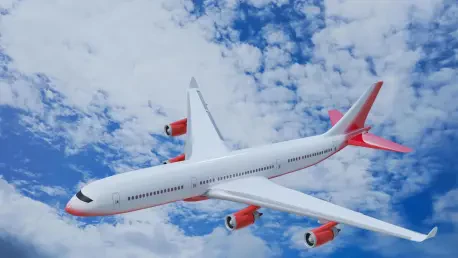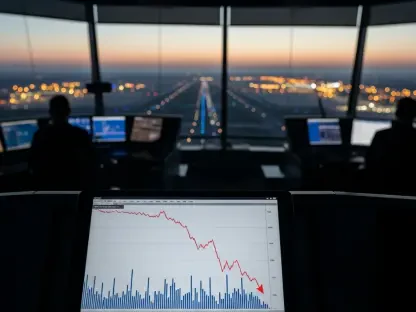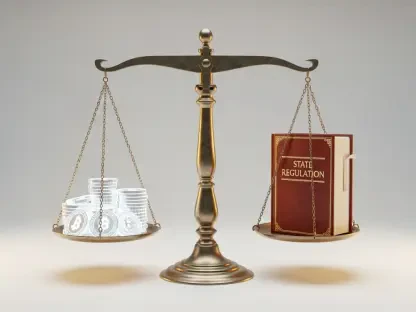In a turn of events shaking the very foundations of national security measures, the TSA Quiet Skies Program has been officially terminated. Donald Gainsborough, a formidable figure in policy analysis, shares his insights on this controversial decision, shedding light on the program’s purpose, failings, and the path forward.
Can you explain the reasons behind the decision to end the TSA Quiet Skies Program?
The decision stemmed from several key concerns. Primarily, the program was deemed ineffective since it failed to thwart any terrorist activities while costing taxpayers a substantial sum annually. Furthermore, there were accusations of the program being misused for political targeting, which compromised its integrity.
What evidence did the internal investigation uncover regarding the misuse of the program?
The investigation unearthed documents and timelines highlighting inconsistent applications of the program. There appeared to be a pattern where these measures benefitted certain political allies while disadvantaging others, suggesting a misuse aligned more with political objectives than national security.
Why did you choose to call for a Congressional investigation instead of solely relying on the DHS’s internal review findings?
Calling for a Congressional investigation ensures a higher level of scrutiny and transparency. While internal reviews lay the groundwork, external oversight can help reveal deeper-seated issues that might not emerge when confined to an internal examination.
How did the Quiet Skies Program originally intend to serve national security, and how did it deviate from this purpose?
The program was meant to monitor and thwart potential security threats by observing passenger behavior to identify unknown or suspected terrorists. Over time, however, its deviation surfaced through its application as a tool for political maneuvering rather than strictly security-focused operations.
Can you elaborate on how the program was allegedly used to target political opponents?
There were accusations that the watchlists were manipulated to favor political allies, while those critical or opposed to certain political figures found themselves under increased scrutiny. This misuse turned a security measure into a political weapon, undermining its intended purpose.
How was the program financially evaluated, and what was the annual cost mentioned?
Financial assessments highlighted that the Quiet Skies Program was costing around $200 million annually, a significant burden given its questionable efficacy in enhancing security.
Why do you believe eliminating this program won’t compromise air safety?
Air safety relies on a multitude of safeguards within TSA’s operation. Removing a program deemed inefficient allows resources to be redirected to more effective measures, reinforcing strengths in other critical areas of TSA operations.
Can you explain how TSA’s core aviation and security functions will be maintained without the Quiet Skies Program?
TSA will refocus resources and training efforts towards its traditional security measures, which means enhancing vetting processes, maintaining a vigilant air marshal presence, and relying on proven intelligence sharing practices to keep flights safe.
What has been the response from both sides of the political spectrum about the program’s alleged misuse?
Responses have been varied, with some supporting the termination due to civil liberty concerns, while others question the politicization allegations. Both sides, however, agree that an in-depth investigation is necessary to clarify the extent of misuse.
How do you respond to Rep. Bennie Thompson’s comments regarding the politicization claims?
It’s essential to keep discussions focused on facts. While disagreements on the degree of politicization exist, the goal remains to ensure that programs adhere to their primary mission without becoming tools for political leverage.
Can you provide clarity on the process that places individuals on watchlists and how it might avoid political bias?
The watchlist process, ideally, should involve multi-agency oversight and clear criteria to ensure objectivity. Strengthening these protocols ensures that personal biases do not influence who is added, thus preserving fairness.
Were there any consultations with aviation or security experts before deciding to terminate the program?
Indeed, dialogues with various experts and stakeholders informed the decision. These consultations provided diverse perspectives on whether such a program enhances or detracts from overarching security goals.
How will eliminating this program restore privacy and equal application of the law for American travelers?
Ending a program accused of political bias can remove undue scrutiny on individuals, reinstating privacy rights and promoting equitable treatment under the law as air travel security measures return to standardized assessments.
What are the steps involved in ensuring that this kind of misuse of surveillance programs does not happen in the future?
Implementing stronger oversight, transparent criteria for any watchlisting, and routine external audits are vital. These steps can prevent programs from being co-opted for non-security-related purposes.
Can you comment on previous incidents where political figures reportedly ended up on watchlists, such as Tulsi Gabbard and Sen. Shaheen’s husband?
These cases highlight potential flaws in the watchlist process, showcasing the need for clear, objective criteria. Although sensitive, these incidents stress the requirement for procedural reforms to prevent perceived or actual bias.
Was any training or education given to TSA agents to prevent future misuse of such programs?
Training has been ongoing to underscore the importance of unbiased application of security measures. Continuous education helps ensure that agents understand the legal and ethical obligations tied to their roles.
How does this decision align with broader DHS goals under your leadership?
The decision recalibrates DHS priorities to focus on effective, fair national security approaches. It underscores a commitment to both public safety and civil liberties, aligning closely with DHS’s broader mission.
Have there been any reforms within TSA to address civil liberty concerns that arose from this program?
Yes, reforms are in progress to enhance transparency and accountability. These efforts aim to bolster public trust in TSA’s commitment to upholding civil liberties while executing its security functions.
What kind of oversight measures will be in place moving forward to protect against potential civil liberty violations?
We plan to introduce regular audits, diverse oversight boards, and clear accountability pathways. These measures aim to prevent overreach and ensure all operations remain within legal and ethical boundaries.
Can you provide any insights into the potential bipartisan support for a Congressional investigation of this matter?
Given the shared concern over civil liberties and political impartiality, there’s potential for bipartisan agreement. Both parties have vested interests in ensuring national security measures remain fair, transparent, and devoid of political manipulation.









